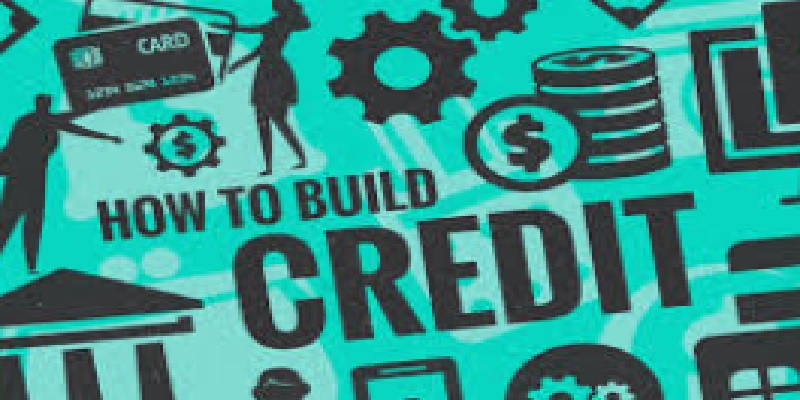 Owning a credit card means it will come with credit as well. When it comes down to building up your credit it can be somewhat difficult. However, the better your credit score is, the better your financial standing is. Read for more information on what a credit score is and how to improve it below.
Owning a credit card means it will come with credit as well. When it comes down to building up your credit it can be somewhat difficult. However, the better your credit score is, the better your financial standing is. Read for more information on what a credit score is and how to improve it below.
 |
 |
Building Credit 101
Normally, when you apply for a credit card, you will either be accepted or declined right away if you do it online. It’s a good idea to look into the card details and what it has to offer before you apply for one though. Additionally, there are several types of credit cards that offer different: interest rates, fees, credit limits, rewards, and more.
Typically, when you have a higher credit limit, it will give you more flexibility to make bigger transactions. However, even if this is a neat perk, it can also be difficult to manage your spending habits. Experian (one of the three major credit bureaus) offer credit cards that have a higher approval rate. But, keep in mind that these cards come with bigger interest rates and charges.
Use Secured Credit Cards
There are possibilities that you might not be accepted for the credit card you apply for. One of the reasons can be that your credit score is too low or you have a bad credit history. When you apply for a secured credit card, it will come with a limit that’s equivalent to your security deposit.
Theoretically, if you make a $1,000 deposit, the limit will be up to $1,000. With a secured card, it will report all of your payments that you make in a month to the credit bureaus. Additionally, this will help you improve your credit history and score. This way, you’ll be able to apply for a normal credit card after you’ve built up your score enough.
How a Credit Card Improves Your Credit Score
Once you’ve been accepted for the credit card that you’ve applied for, it will open up many doors for you. However, it will also come with responsibilities you have to manage as well. By using your credit card properly, you will not have to worry about damaging your credit score. Things to keep your eye on are:
- Payment history. This is one of the major factors that will make or break your credit score. With a credit card, it will track if you pay your bills on time every month. After, you’ll be able to make a good credit history by being on time for your bills. Unfortunately, if you are late or miss any of your payments, it will decrease your credit score.
- Amount Owed. Everything you owe will be reported back towards the credit bureaus by your credit card company. This may or may not correlate with the deadlines for your payments. Experian states that it would be better if you use 30% or less of your credit limit to have a good score.
- Length of Credit History. Unfortunately, you will not be able to take shortcuts to build a longer history. It’s better to use a credit card as soon as you can. The earlier you start, the faster you’ll be able to build up your credit history.
- Credit Mix. The more you use different types of credit, the more you build up your credit score. Several types of credit can be for retail accounts and/or credit cards. Many people that don’t have a credit history are seen as a higher risk. This is compared with people who have a credit history and are able to maintain their account wisely.
- New Credit. Applying for new credit will mean your lender will pull your credit score. In other words, this is the credit inquiry that will be listed on your report. Additionally, there are two types of inquiries: a hard pull and soft pull. Hard pulls will reduce your credit score, while a soft pull will not. Inquiries stay on your report for about 2 years.
Why Having a Good Credit Score is Important
Building credit is a lot more to it than just being able to buy stuff and quite frankly, there’s a lot of risk to it. A bad credit history and low credit score sticks out like a sore thumb and it will make you appear less responsible and more likely to miss your payments or default on your loans. The way banks see you is as bad borrowers and you don’t want that considering that employers, landlords, and insurance companies will take considerable measures when making a decision solely on your credit.
- Buying a home or car: When you go to buy a new house or car, your credit score can either be of help to you or a hindrance. Borrowers with good credit will receive the lower interest rates while the poor credit borrowers will get the worst of the worst interest rates. It’ll be the same situation for renting an apartment solely on no credit history, or bad credit. You may need to get a cosigner willing enough to help you or find a different place to live in.
- Employment opportunities: Certain employment opportunities may not be available to you solely on the reason that you have bad credit. It is federal law to allow potential employers to view a version of your credit report for eligibility purpose. Potential employers can rely on this report to come to a conclusion that you’re less reliable, which does have a huge impact on whether or not you get employed.
- Insurance rates: Insurance companies can also use your credit score to determine the rate that you’ll be paying. If you stick out with a bad score, you’ll also be stuck paying more on your coverage than you need to.
Conclusion
A credit score is very important in the financial world. Managing your credit or secured credit cards will be able to help you improve your score. You can build your credit score once you get accepted for a credit card. However, if you aren’t accepted for one, there are many other options that are available to you. Lastly, maintaining good spending habits and being responsible will help increase your score.


